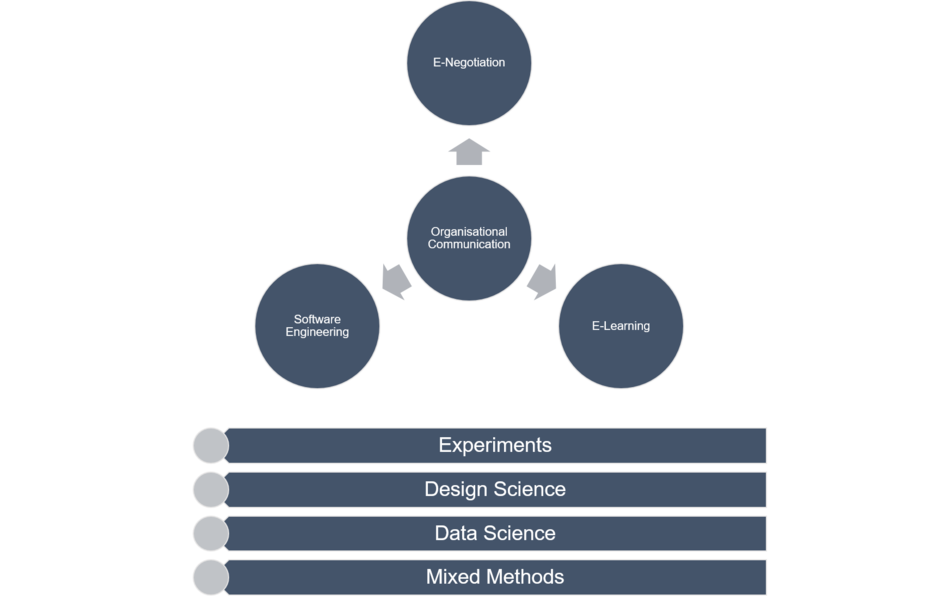Research Focuses
Research Vision Organisational Communication
We understand organisations – companies as well as groups of persons – as communicative institutions. Communication determines processes, structures, coordination and collaboration within and between organisations. We consider communication according to the Language-Action Perspective by its content, its meaning, its intention as well as its derived actions. In the research of organisational communication, we are engaged in the analysis and evaluation of existing information systems as well as the development of new systems in the inter-organisational and intra-organisational environment. We do this in particular in the following areas:

In the analysis of organisational communication in the various subject areas, we use a broad mixture of different research methods. Following a design-oriented approach, we develop prototypical software and evaluate using experiments. We evaluate the data collected using qualitative and quantitative methods. In addition to interviews, participating observation, and surveys, we also use machine learning and eye tracking.
Research Vision
Negotiations are interdependent communication and decision-making processes between two or more parties. Based on the negotiation support system “Negoisst” we investigate potentials for electronic support of negotiation processes. In particular, inter-organisational B2B negotiations are modelled. In experiments, we analyse and evaluate transformative aspects in negotiations such as technologies, media, and costs. Decision support, communication support, document management, and conflict management in electronic negotiations promise more efficient negotiations.
Projects
- Negoisst
- Negotiation Research - Transformation of Technology, Media, and Costs
- Electronic Requirements Negotiations
- Automatisierte Klassifikation von Verhandlungen basierend auf Verhandlungskommunikation
- Measurable Effect of Dynamic Conflict Management in Electronic Negotiations
- Agenda Negotiations in Electronic Negotiation Support Systems
- E-Nego-Motion
- Electronic Negotiation Support in Business-to-Business Electronic Commerce
- SSHRC INE
- Gamifikation in Electronic Negotiations
- Predictive Analytics in Electronic Negotiations
We understand learning as an organisational communication between teachers and learners as well as learners among themselves. Therefore, information must be explicated and mediated following a specific mode in order to trigger learning processes. The focus here is on the personalisation of learning away from mass communication to the individual execution of learning according to topic, methods, and time interests. We analyse learning processes in an intra-organisational environment at universities to ultimately support them through information systems in the form of blended learning or completely electronic teaching.
Projects
Software development requires complex communication processes in the inter-organisational (between manufacturer and customer) as well as intra-organisational environment (between development teams or specialist departments within a company). In this environment we model and analyse negotiation processes for the specification of a software, agile project management methods, as well as their results in the form of the developed software or web page regarding architecture and usability.

